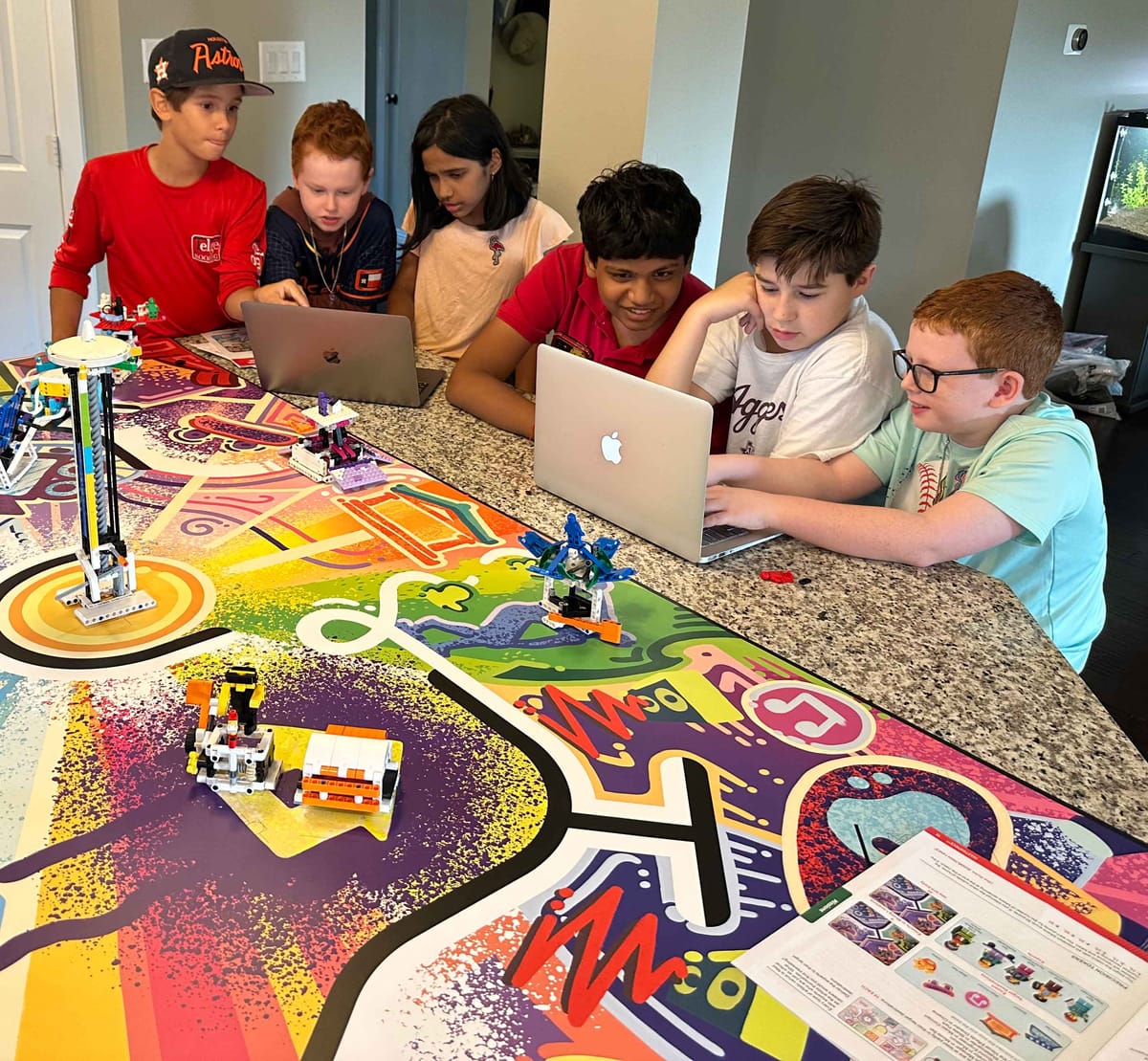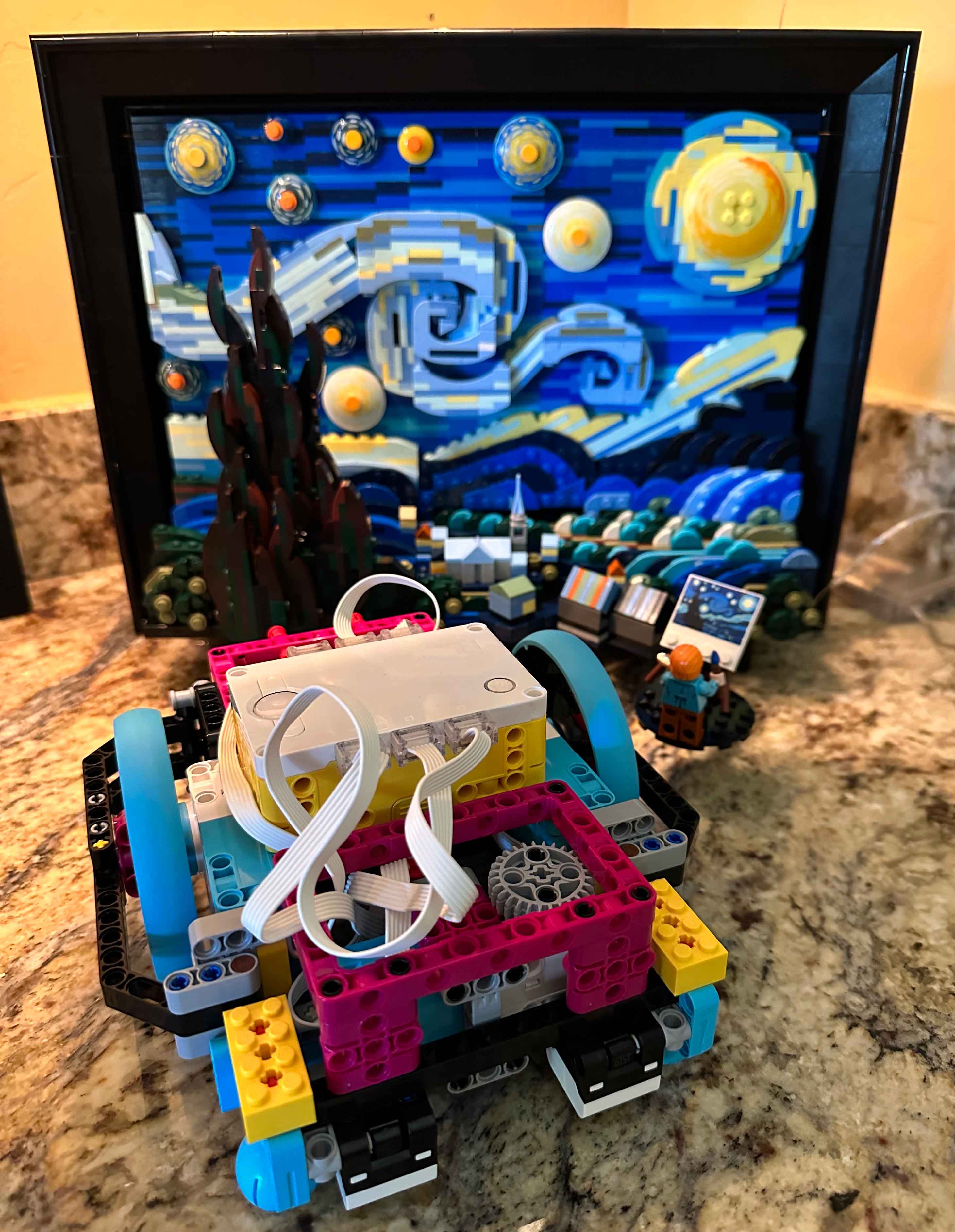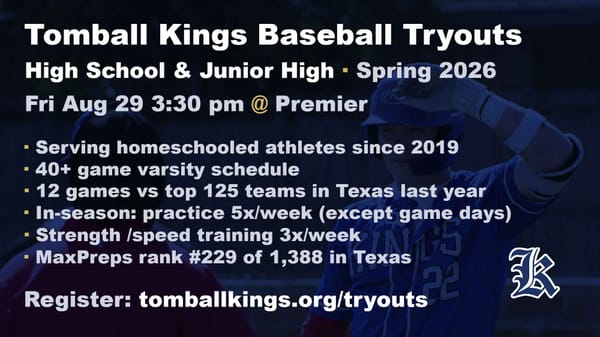Getting started with FIRST LEGO League
Children can advance their knowledge of science, technology, engineering, and math through club-based, FIRST LEGO League competition.

Cultivating an appreciation for the advantages of competition and the importance of competing with integrity is a top priority for the Tomball Kings program. Our interest in this subject extends beyond athletics, encompassing various aspects of life. By nurturing a competitive spirit, we contribute positively to society.
Thus, our recent homeschool sports survey included questions about debate as well as LEGO competitions, and solicited interest in other competitive activities.
Over fifty percent of respondents to date expressed interest in LEGO competitions. Among the most prominent of these is FIRST LEGO League.
One of our coaches recently attended a FIRST LEGO League club meeting in Tomball. That club is guided by Lacey Chancellor, mother of Kings baseball players Finn and Sawyer Chancellor. Another Kings player, Arden Yost, is also an active club member.
Innovation projects are a feature of the "Challenge" level of FIRST LEGO League clubs. In these projects, club members use their time together working on science, technology, engineering, and math to identify and solve a real-world problem.
The Chancellor-guided club chose sandlot baseball for its innovation challenge: how to help more children around the world have access to sandlot baseball parks and opportunities. They presented their problem definition, market analysis, and facilities and operational plan to our coach, who reported that their work was superb.
Club members also demonstrated their robot and related navigation programs, which they will soon be entering into regional FIRST LEGO League competition in Houston, with a chance to international competition. In January, they will demonstrate their work at D-BAT in Cypress.
About FIRST LEGO League
FIRST LEGO League introduces children to the fun and experience of solving real-world problems by applying science, technology, engineering, and math ("STEM"). It is an international program for children created in a partnership between FIRST and the The LEGO Group in 1998. Each year, the program announces an annual Challenge to teams, which engages them in authentic scientific research and hands-on robotics design. After a minimum of eight weeks, the FIRST LEGO League season culminates at high-energy, sports-like tournaments.

FIRST LEGO League divisions
FIRST LEGO League is divided into three divisions:
- FIRST LEGO League: Discover – For children 4-6 years old, this playful introductory STEM program ignites their natural curiosity and builds their habits of learning with hands-on activities in the classroom and at home using LEGO DUPLO bricks.
- FIRST LEGO League: Explore – Teams of students 6-10 years old focus on the fundamentals of engineering as they explore real-world problems, learn to design and code, and create unique solutions made with LEGO bricks and powered by LEGO Education robots.
- FIRST LEGO League: Challenge – Friendly competition is at the heart of Challenge, as teams of students 9-14 years old engage in research, problem-solving, coding, and engineering – building and programming a LEGO robot that navigates the missions of a robot game. As part of Challenge, teams also participate in an innovation project to identify and solve a relevant real-world problem.
Starting a club
We asked Mrs. Chancellor for her advice for parents who might like to start their own club. She has been coaching an FLL Challenge team since August of this year.
Mrs. Chancellor says "Challenge teams can have from two to ten students. We have seven students and I have found that is too many for one coach. Our team is on the younger end, with children ranging from nine to eleven years of age. If there are more parent volunteers then a larger team could work."
Because the Chancellor team is already a large group, it is not accepting any additional team members. Mrs. Chancellor says she would be happy to mentor coaches who want to start their own teams in August 2024, however.
"In First Lego League the focus is on the students figuring things out for themselves," Mrs. Chancellor notes. "The coach is there to provide support and only step in when the student is hitting a wall. And only then it’s to ask questions to get the student back on track."
Mrs. Chancellor also advises that meeting space is a big requirement. She says "our team meets in my home. I am fortunate to have a large island in my kitchen that supports the 8’x4’ robot table. There are building plans available to build a table that folds up when not in use."
Meeting times is also a consideration. Mrs. Chancellor says "We meet once a week for 2 hours. That is the absolute minimum. Many Lego teams meet three or more times per week."
Club costs
Mrs. Chancellor estimates that a first year Challenge team will require a startup fee of about $1,000. She says "the Spike Prime robot is reusable from year to year and costs about $500. Annual team registration is $250 and the season materials are $95. Taxes are additional."
She says a first year Explore team (ages 6-10), on the other hand, "can expect to pay approximately $400 for team registration and a reusable LEGO Education SPIKE Essential set."
FIRST LEGO League also welcomes sponsors. Mrs. Chancellor's father is the chief executive officer of Softeq, a Houston-based technology company that elected to sponsor the Chancellor club. New clubs may wish to consider that Houston is home to many technology companies that might be willing to support their efforts with contributions.
The FIRST LEGO League season begins in August. First-round competitions take place in December or January. Competition registration is an additional $250 per team. If teams advance they can attend divisional, state, and finally world competitions in April, though additional costs would apply.
Mrs. Chancellor would be happy to share her experience with anyone interested in starting a new club. She can be reached at lacey.chancellor@gmail.com or 713-816-0889.


